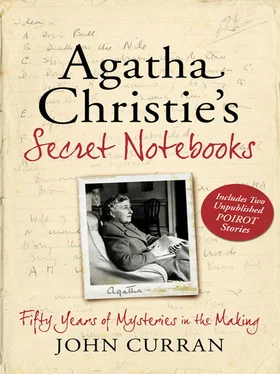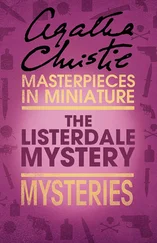Agatha Christie - The Capture of Cerberus
Здесь есть возможность читать онлайн «Agatha Christie - The Capture of Cerberus» весь текст электронной книги совершенно бесплатно (целиком полную версию без сокращений). В некоторых случаях можно слушать аудио, скачать через торрент в формате fb2 и присутствует краткое содержание. Год выпуска: 2009, ISBN: 2009, Издательство: HarperCollins, Жанр: Классический детектив, на английском языке. Описание произведения, (предисловие) а так же отзывы посетителей доступны на портале библиотеки ЛибКат.
- Название:The Capture of Cerberus
- Автор:
- Издательство:HarperCollins
- Жанр:
- Год:2009
- ISBN:978-0007310562
- Рейтинг книги:3 / 5. Голосов: 1
-
Избранное:Добавить в избранное
- Отзывы:
-
Ваша оценка:
- 60
- 1
- 2
- 3
- 4
- 5
The Capture of Cerberus: краткое содержание, описание и аннотация
Предлагаем к чтению аннотацию, описание, краткое содержание или предисловие (зависит от того, что написал сам автор книги «The Capture of Cerberus»). Если вы не нашли необходимую информацию о книге — напишите в комментариях, мы постараемся отыскать её.
В составе книги примечания редактора и предисловие.
Книга на английском языке.
The Capture of Cerberus — читать онлайн бесплатно полную книгу (весь текст) целиком
Ниже представлен текст книги, разбитый по страницам. Система сохранения места последней прочитанной страницы, позволяет с удобством читать онлайн бесплатно книгу «The Capture of Cerberus», без необходимости каждый раз заново искать на чём Вы остановились. Поставьте закладку, и сможете в любой момент перейти на страницу, на которой закончили чтение.
Интервал:
Закладка:
Poirot looked slightly puzzled. He murmured:
‘He is then an engineer, or an architect?’
‘What does it matter?’ demanded the Countess Rossakoff. ‘He is adorable. He is wrapped up in iron girders and things called stresses. The kind of things I have never understood nor cared about. But we adore each other.’ [5] The passage about the Countess’s son is almost word-for-word the same as in the collected version of the story.
Herr Keiserbach took his leave. He asked of Poirot:
‘You are staying here, M. Poirot? Good. Then we may meet again.’
Poirot asked the lady:
‘You will have an apéritif with me?’
‘Yes, yes. We will drink vodka together and be very gay.’
The idea seemed to Hercule Poirot a good one. [6] It seems odd that Poirot would look forward to drinking vodka.
ii
It was on the following evening that Dr Keiserbach invited Hercule Poirot to his rooms.
They sipped a fine brandy together and indulged in a little desultory conversation together.
Then Keiserbach said:
‘I was interested, M. Poirot, by something that our charming friend said about you yesterday.’
‘Yes?’
‘She used these words. He can even bring the dead back to life.’
Hercule Poirot sat up a little in his chair. His eyebrows rose. He said:
‘That interests you?’
‘Ven -much.’
‘Why?’
‘Because I feel those words may have been an omen.’
Hercule Poirot said sharply:
‘Are you asking me to bring the dead to life?’
‘Perhaps. What would you say if I did?’
Hercule Poirot shrugged his shoulders. He said:
‘After all, death is death, Monsieur.’
‘Not always.’
Hercule Poirot’s eyes grew sharp and green. He said:
‘You want me to bring a person who is dead to life again. A man or a woman?’
‘A man.’
‘Who is it?’
‘You do not appear appalled by the task?’
Poirot smiled faintly. He said:
‘You are not mad. You are a sane and reasonable individual. Bringing the dead to life is a phrase susceptible of many meanings. It may be treated figuratively or symbolically.’
The other said:
‘In a minute you will understand. To begin with, my name is not Keiserbach. I adopted that name so that I should pass unnoticed. My own name is too well-known. That is, it has been too well-known for the last month.
‘Lutzmann.’
He spoke it significantly. His eyes searched Poirot closely. Poirot said sharply:
‘Lutzmann?’ He paused and then said in a different tone. ‘Hans Lutzmann?’
The other man said in a hard dry voice:
‘Hans Lutzmann was my son…
iii
If, a month previously, you had asked any Englishman who was responsible for the general condition of European unrest, the reply would almost inevitably have been ‘Hertzlein’.
There was, it was true, also Bondolini, [7] Although he sounds like a character from the world of operetta, it is difficult not to think of Mussolini.
but it was upon August Hertzlein that popular imagination fastened. He was the dictator of dictators. His warlike utterances had rallied the youth of his own country and of allied countries. It was he who had set central Europe ablaze and kept it ablaze.
On the occasion of his public speeches he was able to set huge crowds rocking with frenzied enthusiasm. His high strangely tuned voice had a power all its own.
People in the know explained learnedly how Hertzlein was not really the supreme power in the Central Empires. They mentioned other names—Golstamm, Von Emmen. These, they said were the executive brains. Hertzlein was only the figurehead. Nevertheless it continued to be Hertzlein who loomed in the public eye.
Hopeful rumours went about. Hertzlein had an incurable cancer. He could not live longer than six months. Hertzlein had valvular disease of the heart. He might drop down dead any day. Hertzlein had had one stroke already and might have another any moment. Hertzlein after violently persecuting the Catholic Church had been converted by the famous Bavarian monk, Father Ludwig. He would shortly enter a monastery. Hertzlein had fallen in love with a Russian Jewess, the wife of a doctor. He was going to leave the Central Empires and settle down with her in Sweden.
And in spite of all the rumours, Hertzlein neither had a stroke, nor died of cancer, nor went into a monastery, nor eloped with a Russian Jewess. He continued to make rousing speeches amidst scenes of the greatest enthusiasm and at judicious intervals he added various territories to the Central Empires. And daily the shadow of war grew darker over Europe.
Desperately people repeated all the hopeful rumours even more hopefully. Or demanded fiercely:
‘Why doesn’t someone assassinate him? If only he were out of the way…’
There came a peaceful week when Hertzlein made no public utterances and when hopes of each of the separate rumours increased tenfold.
And then, on a fateful Thursday, Herr Hertzlein addressed a monster meeting of the Brothers of Youth.
People said afterwards that his face was drawn and strained, that even his voice held a different note, that there was about him a prescience of what was to come—but there are always people who say such things afterwards.
The speech began much as usual. Salvation would come through sacrifice and through the force of arms. Men must die for their country—if not they were unworthy to live for it. The democratic nations were afraid of war—cowardly—unworthy to survive. Let them go—be swept away—by the glorious force of the Young. Fight—fight and again fight—for Victory, and to inherit the earth.
Hertzlein, in his enthusiasm stepped out from behind his bulletproof shelter. Immediately a shot rang out—and the great dictator fell, a bullet through his head.
In the third rank of the listening people, a young man was literally torn to pieces by the mob, the smoking pistol still grasped in his hand. That young man was a student named Hans Lutzmann.
For a few days the hopes of the democratic world rose high. The Dictator was dead. Now perhaps, the reign of peace would come. That hope died almost immediately. For the dead man became a symbol, a martyr, a Saint. Those moderates whom he had failed to sway living, he swayed dead. A great wave of warlike enthusiasm swept over the Central Empires. Their Leader had been killed—but his dead spirit should lead them on. The Central Empires should dominate the world—and sweep away democracy.
With dismay, the peace lovers realised that Hertzlein’s death had accomplished nothing. Rather it had hastened the evil day. Lutzmann’s act had accomplished less than nothing.
iv
The dry middle-aged voice said:
‘Hans Lutzmann was my son.’
Poirot said:
‘I do not yet understand you. Your son killed Hertzlein—’
He stopped. The other was slowly shaking his head. He said:
‘My son did not kill Hertzlein. He and I did not think alike. I tell you he loved that man. He worshipped him. He believed in him. He would never have drawn a pistol against him. He was a Nazi [8] Despite the unavoidable allegory throughout the story, this is the only unequivocal reference to the Nazis.
through and through—in all his young enthusiasm.’
‘Then if not—who did?’
The elder Lutzmann said:
‘That is what I want you to find out.’
Hercule Poirot said:
‘You have an idea…
Lutzmann said hoarsely:
‘I may be wrong.’
Hercule Poirot said steadily:
‘Tell me what you think.’
Keiserbach leaned forward.
Читать дальшеИнтервал:
Закладка:
Похожие книги на «The Capture of Cerberus»
Представляем Вашему вниманию похожие книги на «The Capture of Cerberus» списком для выбора. Мы отобрали схожую по названию и смыслу литературу в надежде предоставить читателям больше вариантов отыскать новые, интересные, ещё непрочитанные произведения.
Обсуждение, отзывы о книге «The Capture of Cerberus» и просто собственные мнения читателей. Оставьте ваши комментарии, напишите, что Вы думаете о произведении, его смысле или главных героях. Укажите что конкретно понравилось, а что нет, и почему Вы так считаете.












